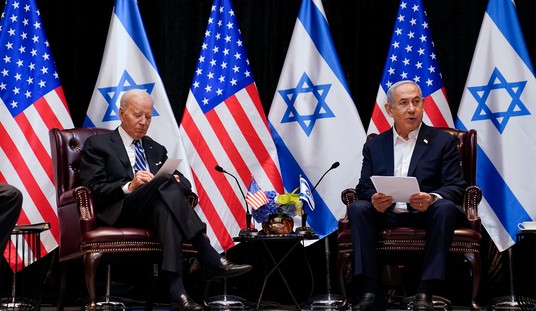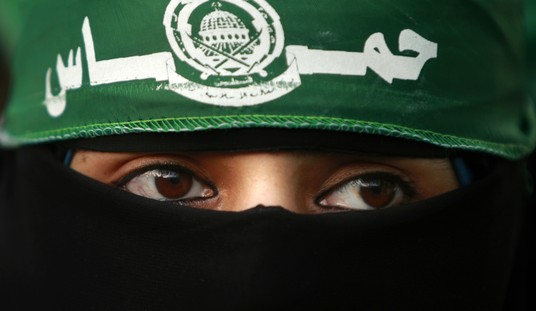VOA quotes a top military official who says that US troops will be brought under NATO command. “U.S. Secretary of Defense Robert Gates ordered the reorganization before traveling to Kabul last week.”
In another significant shift, NATO’s top commander, U.S. General Stanley McChrystal, said he has brought most U.S. Special Operations forces in the country under his direct command.
Afghan officials have complained that Special Operations troops are responsible for a large number of civilian casualties, and they have pressed McChrystal to restrict their night-time combat missions.
Human rights advocates have accused Special Forces units of being out of control and a law unto themselves. “Meanwhile, officials say Afghan President Hamid Karzai and U.S. President Barack Obama held a video conference to discuss prospects of peace with the Taliban.” The conversation lasted for more than an hour. Special Operations have been a political sore point.
The New York Times says “critics, including Afghan officials, human rights workers and some field commanders of conventional American forces, say that Special Operations forces have been responsible for a large number of the civilian casualties in Afghanistan and operate by their own rules.
“In most of the cases of civilian casualties, special forces are involved,” said Mohammed Iqbal Safi, head of the defense committee in the Afghan Parliament, who participated in joint United States-Afghan investigations of civilian casualties last year. “We’re always finding out they are not obeying the rules that other forces have to in Afghanistan.”
“These forces often operate with little or no accountability and exacerbate the anger and resentment felt by communities,” the Human Rights Office of the United Nations Assistance Mission in Afghanistan wrote in its report on protection of civilians for 2009.
The administration is also attempting to limit the use of contractors in intelligence gathering operations. David Ignatius at the Washington Post says efforts to fix the CIA’s perceived failures and to find kidnapped American journalists led to outside hires. But their use was continued indefinitely, which posed a problem according to another VOA article because US law “forbids employment of mercenaries”. Adm. Dennis Blair, the director of national intelligence, was said to be arguing “privately that the country may need … a coherent framework with proper controls.”
These reorganizations are taking place as General David Petraeus warned that the next year in Afghanistan would be a difficult one. “the going is likely to get harder before it gets easier,” he said. The Department of Defense suggested it was looking beyond Afghanistan in isolation and at the broader strategic threat. A DOD press release said:
While the United States draws down in Iraq and builds up in Afghanistan, “we must not lose sight of our other challenges” in the Middle East, the commander of U.S. Central Command said here today.
Army Gen. David H. Petraeus told the Senate Armed Services Committee that the United States must remain vigilant in overseeing broader security challenges throughout the region.
Petraeus called Iran the “primary state-level threat” in the Middle East. He told the panel that Iran undermines security throughout the region in its efforts to gain nuclear weapons, which threatens a broader arms race, and uses its paramilitary force to influence Iraq, Lebanon, Syria, Gaza, Afghanistan and the Gulf region.
Petraeus hinted that he was preparing for what he called the “pressure track”, which might follow the diplomatic effort now under way.
President Barack Obama “has not taken the military option off the table” with regard to Iran. “No one can say Iran has not had every opportunity possible to them,” he said. “Our hand was outreached, and they didn’t grasp it. The focus is shifting to what is known as a pressure track, but I don’t want to get ahead of the administration.”
But despite Petraeus’s protestations, it is the military’s job to anticipate events, at least for contingency planning purposes, rather than merely react to them. What the efforts to bring things under control and go beyond Afghanistan portend is not easy to predict, perhaps intentionally so. Are we witnessing a shift in strategic focus back to the Middle East? If “Iraq, Lebanon, Syria, Gaza, Afghanistan and the Gulf region” once again become the focus instead of the “war of necessity” that Barack Obama once described Afghanistan to be, it will mark a return to a theater which the President once felt was secondary.
Does it suggest a broader failure of the administration’s engagement policy? Getting the “pressure track” ready that “engagement” now needs pressure to get it going. The recent demands of Israel to make concessions may indicate the administration’s diplomatic weakness rather than strength. The Grand Bargain bus is stalled and needs to be pushed out of a rut.
Or does it just mean that time is up and the President is winding things down preparatory to ending the Afghan operation?
Time will tell whether the administration is returning to port or changing the destination.
| Tocque: Requires Javascript enabled in Firefox 3.5, IE 8.0, or Safari 4.0 |









Join the conversation as a VIP Member